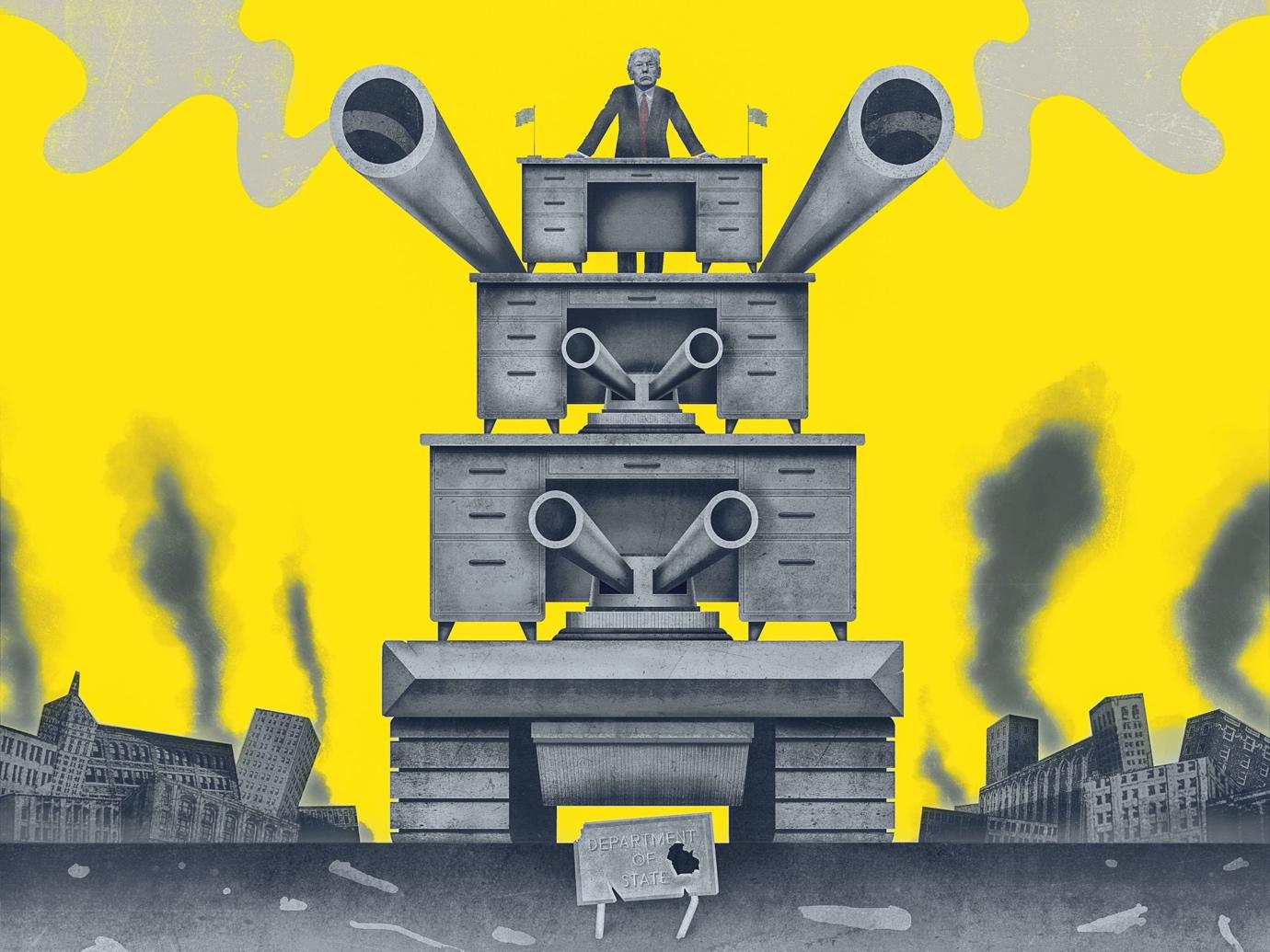
Show how ideologies of American exceptionalism and innocence have inoculated public from human suffering meted out in their name
Credibility is low these days for the U.S. government, politicians and the mainstream media. Sorting through news reports for reliable fact and analysis would make George Orwell weep. Jeffrey Sachs, director of the UN Sustainable Development Center, decries the fact that “the world is on the edge of nuclear catastrophe” due to “the failure of Western political leaders to be forthright about the causes of the escalating global conflicts.” (“Forthright” means honest.)
Oliver Stone and Peter Kuznick, co-authors of The Untold History of the United States, praise Aaron Good’s American Exception: Empire and the Deep State (New York: Skyhorse, 2022) as “something we might call untold social science,” digging deep into “the pernicious impact of intelligence and security forces and their role in undermining [U.S.] integrity as a country.”
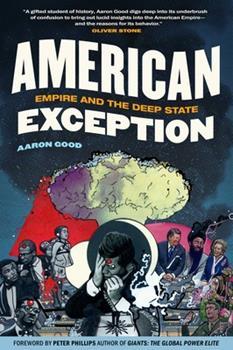
American exception and exceptionalism are different things—interrelated but distinct. For the first, we can recall the concept of a “state of exception,” when a government leader suspends normal laws and governs by decree. Exceptionalism, on the other hand, is the “normal” justification for all manner of power mongering and conquest, from the “manifest destiny” to relieve the Indigenous people of North America of their land and lives, to the “right” to wage U.S. military occupation and constant wars across the globe to protect “democracy and human rights,” always for the good of all, no matter how bad it may seem. A working definition of “manifest destiny” is that European settlers were “sent from heaven” to “civilize” inferior people, and if they resist, heaven’s hosts are justified to subdue them.
Roberto Sirvent and Danny Haiphong focus on “the American nation’s roots in slavery, genocide, and corporate theft.” They show how the dominant narratives of American exceptionalism and innocence cause many Americans “to forget, distort, or excuse the crimes of the nation.” They ask: “Why does the U.S. military have free reign to dictate how other nations conduct themselves, while other countries aren’t allowed to critique the U.S. for the very same actions? And if the U.S. really cared about protecting our ‘freedom,’ why is nothing done to alleviate the declining living standards of ordinary Americans?”
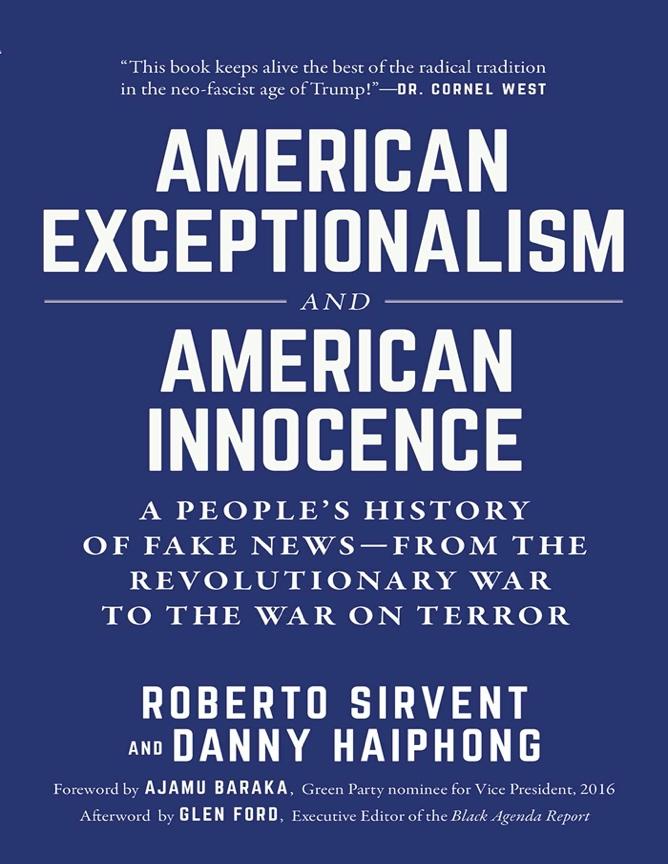
The ideologies of American exceptionalism and innocence, the authors say, “have inoculated the U.S. population from making the connection between the death imposed by modern day U.S. capitalism at home and the misery the U.S. military reigns on nations abroad.”
The authors highlight how this plays out for the working class soldiers who are pushed by the poverty draft to join the military. They are “constantly thanked for their ‘service’ while the victims of war are stripped of their humanity…Wars are effectively sanitized as heroic operations that defend the ‘freedom’ and ‘democracy’ of all. Soldiers…are celebrated for supposedly protecting the interests of Americans from the inferior nations and peoples seeking to harm them.” The authors explain that “inferiority has been a mark placed on communists, nationalists, and most recently ‘terrorists’ to justify the plunder, power and profit” derived from U.S. military expansionism. “U.S. troops represent ‘whiteness’ in the form of heroism as opposed to the ‘threat’ posed by darker nations and peoples.”
In contrast to the corporate-sponsored “Concert for Valor” on Veterans Day in 2014, Sirvent and Haiphong cite former Army Ranger Rory Fanning’s pointed questions: “Is anyone going to dedicate a song to Chelsea Manning, or John Kiriakou, or Edward Snowden—two of them languishing in prison and one in exile—for their service to the American people? Will the Concert for Valor raise anyone’s awareness when it comes to the fact that…veterans lack proper medical attention, particularly for mental health issues, or that there is a veteran suicide every 80 minutes in this country?”
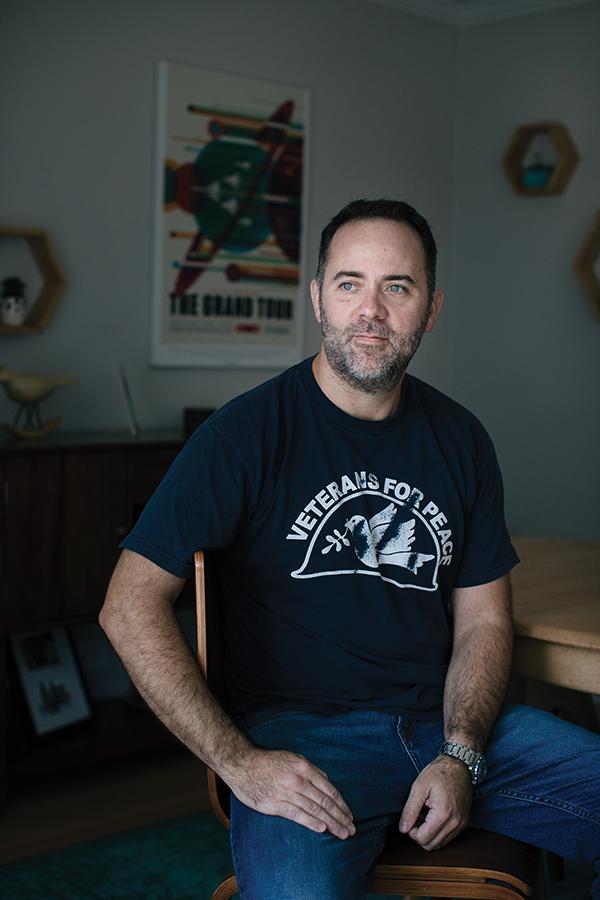
Fanning cites “the approximately 50,000 war resisters who have joined the military since 2001.” In most cases they entered the military with their eyes wide open, ready to “serve their country, defend democracy and human rights,” and kill the enemy. They came out disillusioned and angry. Fanning thinks “the potential for veterans who come back to become positive influences in the fight against exploitation and oppression is really high.” Meanwhile the U.S. government prosecutes whistle blowers and hopes to put Julian Assange on trial for “espionage” for having publicized the truth about the war machine.
Examining Origins
Aaron Good digs deep to find the roots of the problem. He highlights the “Guardian elite” (a term introduced by Lance DeHaven-Smith)—“high-ranking officials who are privy to state secrets, who decide what the public may and may not know, and who plan and authorize covert operations, foreign and domestic surveillance, and other espionage and intelligence activities.” This elite “polices—largely in secret—the political class and the mass public. They serve to allow the state to overcome three potential impediments to the exigencies of empire, namely: America’s moral code, global meta-norms, and the rule of law…Exceptionism—the institutionalized suspension of legal restraints—protects them from facing legal consequences stemming from their illicit clandestine activities.”

Good traces back the legitimacy or illegitimacy of the modern state’s monopoly on violence to the protection rackets, but on a global scale, as in “the trans-Atlantic slave trade, the Opium Wars, and overt imperialism like colonialism.” Good says “it is noteworthy that Henry Cabot Lodge, the man perhaps most responsible for steering the U.S. into the Spanish-American war, was descended from Boston Brahmins who had made vast fortunes in the opium trade.” He was a loud proponent of the U.S. “open door” policy, designed for the emerging U.S. Empire to stand shoulder-to-shoulder with imperial Britain, Germany and France in dominating China for a century following the opium wars of the mid-1800s. Lodge opposed U.S. entry into the League of Nations, but his son, Henry Cabot Lodge, Jr., was U.S. ambassador to the UN from 1953 to 1960, and to South Vietnam from 1963 to 1967.
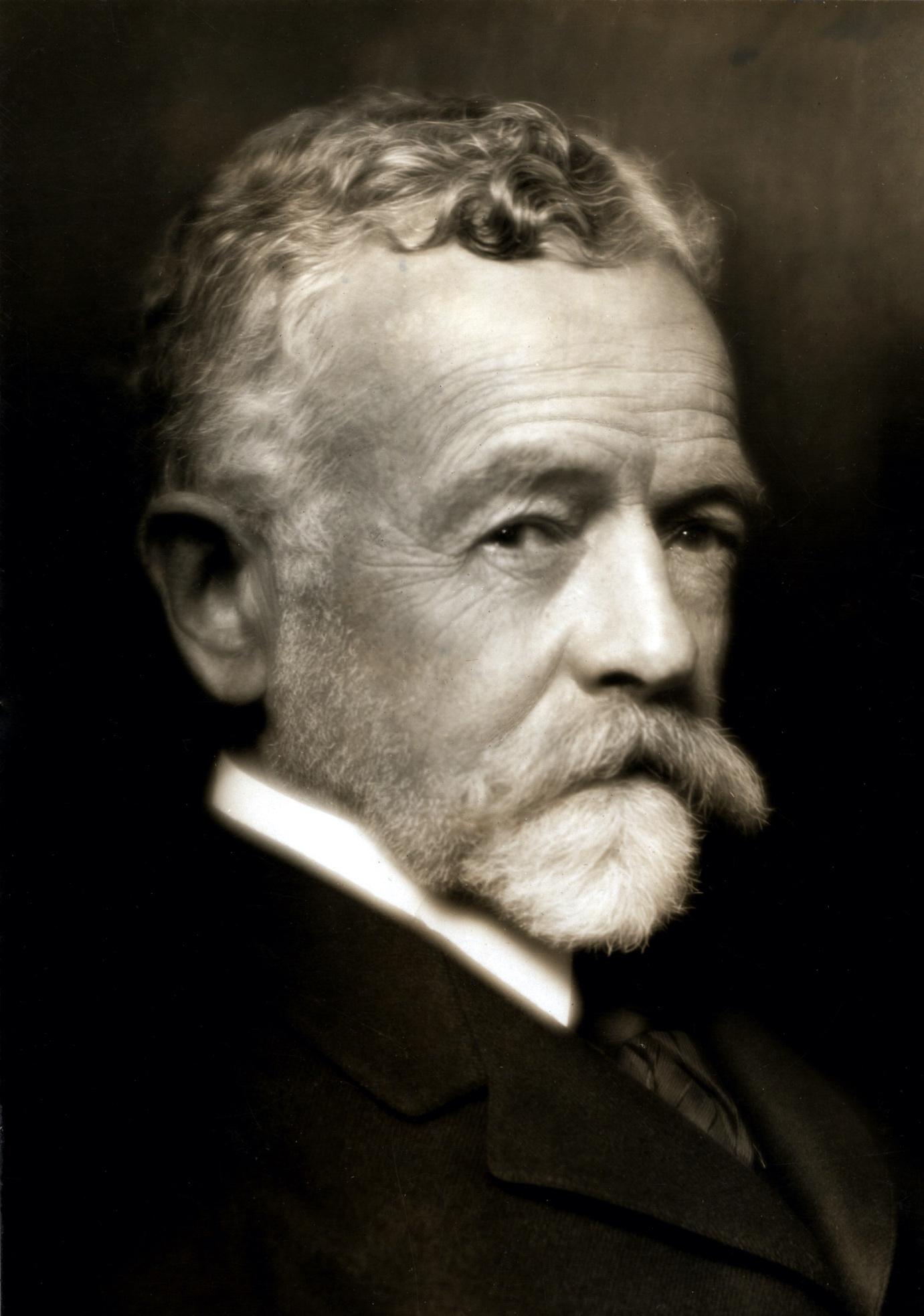
Lodge Junior worked closely with CIA operatives in planning the coup against Ngo Dinh Diem, the U.S. puppet leader of South Vietnam, who was assassinated on November 2, 1963. Three weeks later John F. Kennedy was assassinated in Dallas.
There had been a tug-of-war over the Vietnamese coup plot, between Lodge and JFK’s top military advisers, Defense Secretary Robert McNamara and General Maxwell Taylor. All this followed Kennedy’s famous “Strategy of Peace” speech at American University on June 10, 1963, which caused alarm on the right and among hawks in the military and CIA. After Kennedy was gone, Good notes that “the CIA under President Johnson would reverse several Kennedy era policies in several Third World countries, most notably Brazil, Congo and Indonesia.”
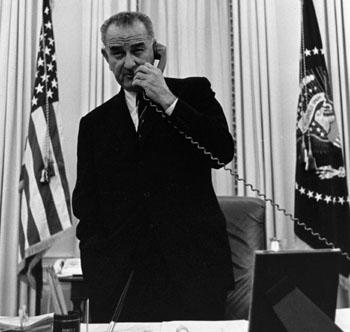
CIA-Backed Coups and Slaughters on Three Continents
In Brazil a U.S.-backed military coup overthrew the progressive government of President João Goulart, installing a military regime aligned to U.S. interests, which lasted 21 years, until 1985.
Meanwhile the CIA was very busy across South America, helping to overthrow Salvador Allende’s Popular Unity government in Chile in 1973, fostering the “dirty war” against Argentina’s left in the mid-1970s, as part of Operation Condor which the CIA described as “a cooperative effort by the intelligence/security services of several South American countries to combat terrorism and subversion.”
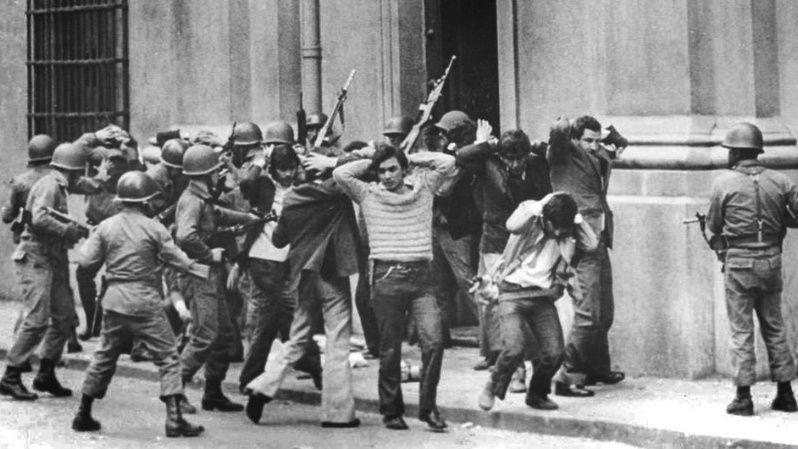
The operation included Argentina, Chile, Uruguay, Paraguay, Bolivia, Brazil, Ecuador and Peru. The results were 50,000+ killed; 30,000 “disappeared,” and 400,000 arrested and imprisoned.
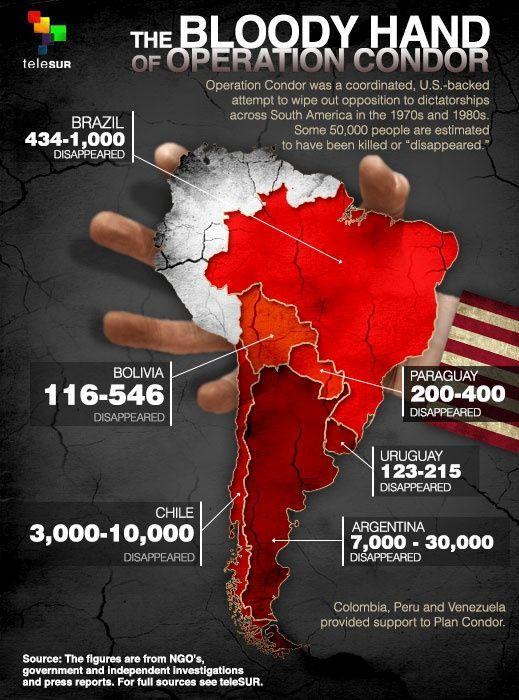
In Indonesia, the story is summarized in The Jakarta Method by Vincent Bevins. In 1965, the U.S. CIA helped the Indonesian military kill more than a million innocent civilians. This largely unpublicized slaughter inspired copycat terror programs in other countries. It was widely overlooked, but served as a model for the CIA’s secret interventions elsewhere.
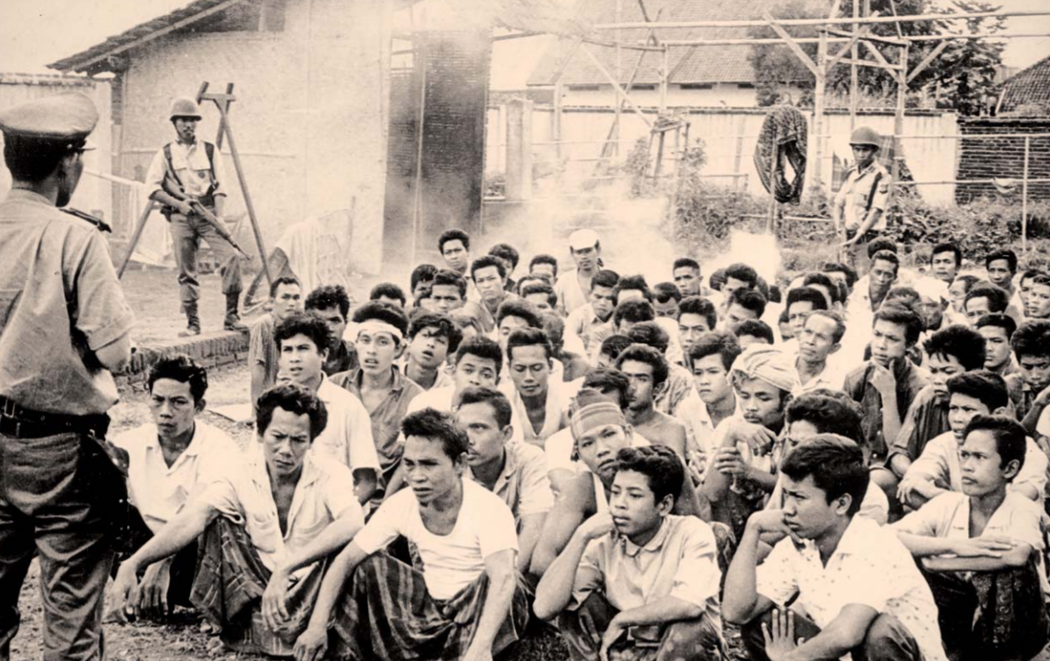
In the Congo—Africa’s second largest country geographically, with a population of more than 100 million—the CIA was involved in the 1961 assassination of Prime Minister Patrice Lumumba, and helped foster a four-year civil war killing tens, if not hundreds, of thousands.
Lumumba’s followers founded a state, the People’s Republic of the Congo, with its capital in the northeastern city of Stanleyville, supported by the Soviet Union and China, as well as Tanzania and Cuba. Che Guevara led a group of 100 Cuban advisers there.
The CIA supported the government of Prime Minister Joseph Mobutu, who seized power and set up his own state of exception in 1965, with U.S. backing. In 1971, Mobutu renamed the state Zaire. He was deposed in 1997, in an insurrection led by the Lumumbist forces of Laurent-Désiré Kabila, who became president of the restored Democratic Republic of the Congo.
Since then the Congo has been a scene of ongoing struggle between left and right both internally and internationally. Two rebel movements, along with Rwandan and Ugandan troops, attacked the DRC army in 1998. Angolan, Zimbabwean, and Namibian militaries helped the Lumumbist side, which had supported their liberation efforts in the 1970s and 1980s. The Lumumbists won, but conflict continues to the present day.

Meanwhile, across the rest of Africa and Latin America, there were assassinations, attempts, and tragic deaths of liberation leaders. Amilcar Cabral of Guinea-Bissau was assassinated in Conakry, Guinea, in January 1973 at the age of 48 by political rivals. Samora Machel of Mozambique died in a mysterious airplane crash in 1986 near the South African border. Both Kwame Nkrumah, president of Ghana, and Agostinho Neto, founder of the MPLA and president of Angola, died relatively young of pancreatic cancer.
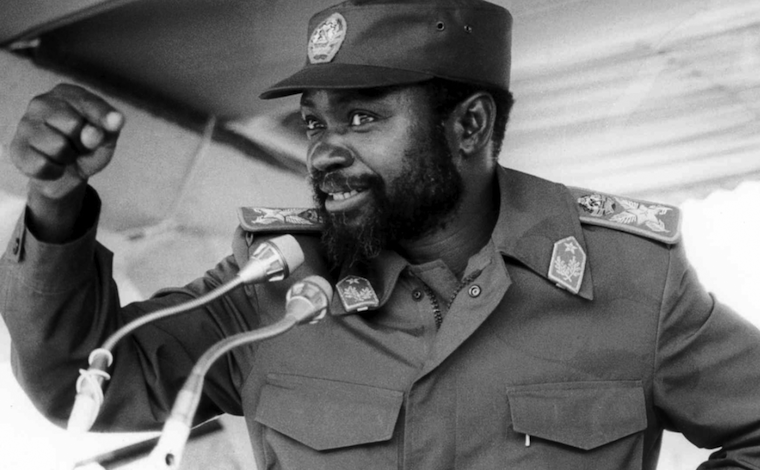
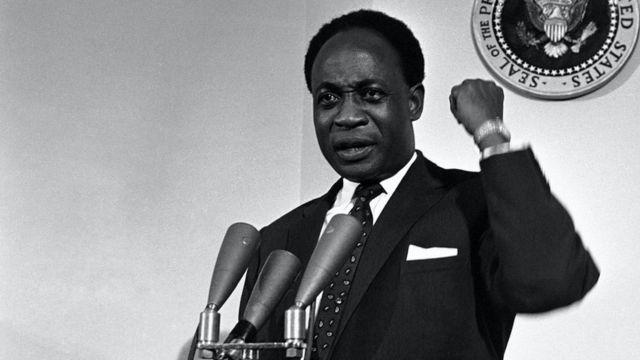
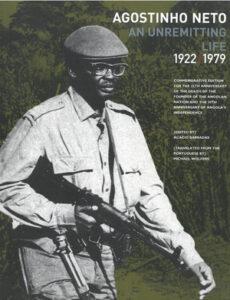
Fidel Castro has the distinction of surviving no less then 637 CIA assassination attempts. Venezuelan leader Hugo Chávez was not so fortunate. Chávez himself speculated that he had been poisoned. His successor, Nicolás Maduro, called it an assassination. Chinese Foreign Minister Zhou Enlai was nearly assassinated when he was en route to the Bandung Conference of non-aligned nations in 1955.
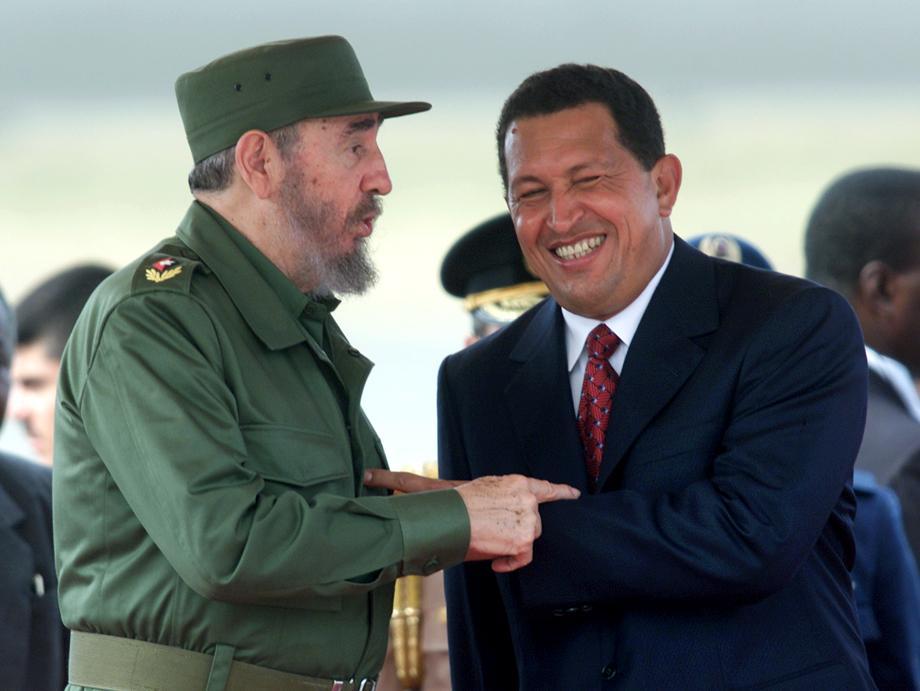
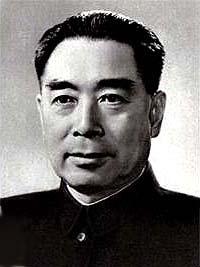
A “Tripartite State”
Good traces the origins of the modern “deep state” to the Wall Street-dominated Council on Foreign Relations, which conducted the State Department’s War and Peace Studies Project prior to U.S. entry into World War II. The study was largely financed by the Rockefeller Foundation, which Good says “represented an enormous accumulation of wealth acquired via Standard Oil’s longtime monopoly control of the U.S. petroleum industry.” He cites a number of “fateful instances in which top-down power was brought to bear in the making of history during this period”—the War and Peace Studies Project itself; “Pauley’s coup,” by which Henry Wallace, FDR’s choice for vice president was defeated by illegal maneuvers at the 1944 Democratic Convention; the dropping of the atomic bombs; and the National Security Act of 1947.
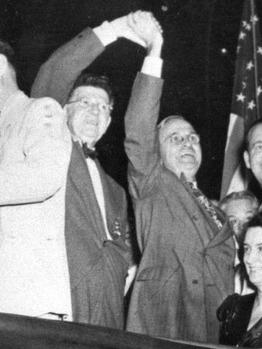
Wallace had rebutted CFR member and media tycoon Henry Luce’s bombastic “American Century” vision by calling for a “Century of the Common Man”—a vision “calling for a worldwide ‘people’s revolution,’ toward which end the U.S. and USSR would work together, championing the cause of labor unions, women, African Americans, and the victims of European colonialism,” as cited in The Untold History of the United States by Oliver Stone and Peter Kuznick.
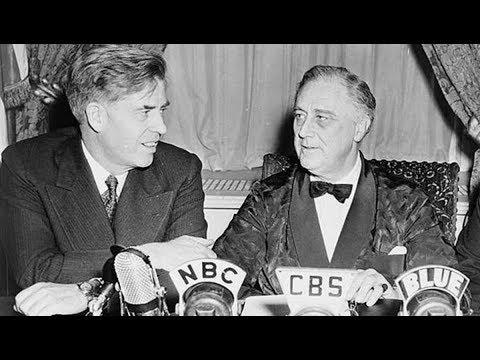
Wallace had effectively won the vice-presidential nomination at the 1944 convention, but the Democratic Party’s Treasurer, Edwin Pauley, a California oil millionaire, hatched a conspiracy which he called “Pauley’s Coup,” together with major party bosses to choose Truman instead. (Kuznick tells the story in a 2013 Real News Network interview, “Untold History: The Coup Against Wallace and What Might Have Been.”)
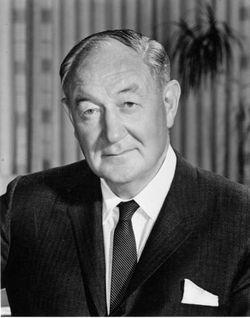
What followed was the bombing of Hiroshima and Nagasaki and the launch of the Cold War anti-communist crusade with the National Security Act of 1947, which created the Joint Chiefs of Staff, the National Security Council and the CIA.
Good says “the CIA was willed into being through the efforts and influence of the upper strata of corporate America…Notably, it was a Wall Street lawyer who penned the ‘elastic clause’ in the National Security Act. Shortly thereafter, the passage came to be interpreted as giving the CIA authority to carry out all manner of illegal covert operations—or ‘other duties’ in the Act’s oblique language.” The lawyers in question were the Dulles brothers: Allen Dulles, who became CIA director, and John Foster Dulles, Secretary of State under Eisenhower.
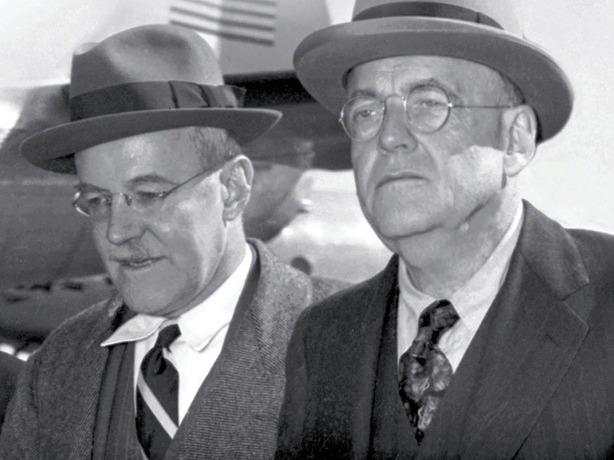
“Very early on, CIA elements began establishing illicit self-funding operations…Specifically, the CIA’s Office of Policy Coordination (OPC) collaborated with opium-trafficking Kuomintang (KMT) officers in Burma and Thailand, ostensibly so the proceeds could fund the KMT’s…effort to retake mainland China.”
The legendary “Flying Tigers” Civil Air Transport line became the CIA’s principal drug-running operation, changing its name to Air America in 1959. Air America’s slogan was “Anything, Anywhere, Anytime, Professionally.”
Its aircraft flew many types of cargo to countries such as Vietnam, Laos, and Cambodia, from bases in Thailand, Taiwan, Japan, Burma and China itself. Historian Alfred W. McCoy’s book, The Politics of Heroin in Southeast Asia, stated that the CIA was knowingly involved in the trade of heroin in the Golden Triangle—a term coined by the CIA.

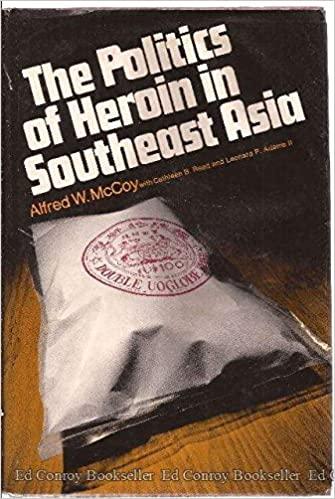
While colluding with the KMT in the drug trade, the CIA also worked diligently to foster separatism and break up China—in Tibet, Xinjiang, Hong Kong and Taiwan—setting up long-term operations with the National Endowment for Democracy (NED), the U.S. Agency for International Development (USAID), and numerous non-governmental organizations.
Former CIA Director and Trump Secretary of State Mike Pompeo admitted in 2019 that “We lied, we cheated, we stole…It’s part of the glory of the American experiment.” USAID Director Samantha Power has chimed in to say U.S. policymakers “have been consistently reluctant to condemn mass atrocities as genocide or to take responsibility for leading an international military intervention.” Pompeo and Power have led the evidence-free campaign against Chinese human rights violations in China. They do not mention U.S. violations of human rights.
Mainstream Media and the Deep State

Good emphasizes that “the mainstream media must be considered part of the deep state.” He tells the story of Katharine Graham, former publisher of The Washington Post, who in 1988 spoke at CIA headquarters, “asserting that ‘We live in a dirty and dangerous world,’ and that there were ‘some things the general public does not need to know and shouldn’t.’ She also stated that ‘official secrecy is necessary to preserve liberty.’”
The Post was “one of the chief newspapers that attacked the work of Gary Webb,” of the San Jose Mercury News, in the 1990s. “Webb’s articles revealed the CIA protection of Contra-cocaine traffickers whose profligate operations fueled the Los Angeles crack epidemic that began in the 1980s.” Good says “Though a CIA Inspector General report would later confirm and expand upon Webb’s central allegations, his career and life were essentially ruined by the counterattack of the CIA and its media allies.” Though he suffered two gunshot wounds to the head, Webb’s death was described as suicide.
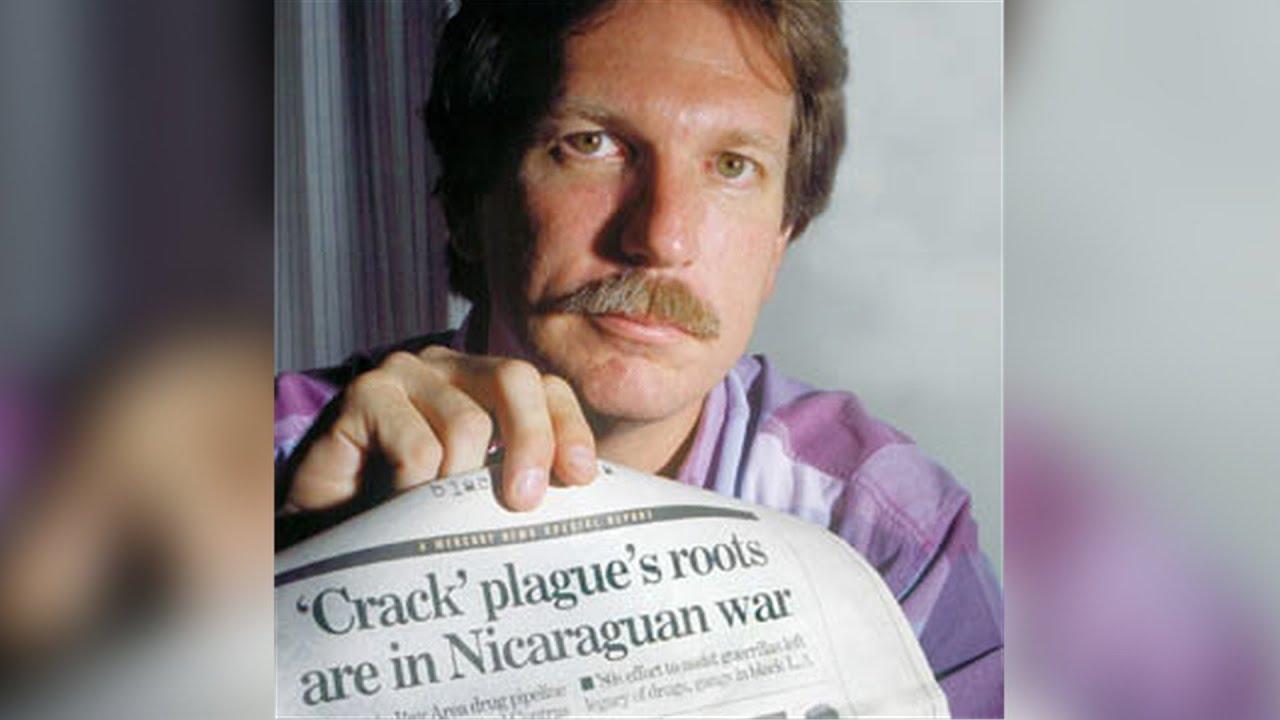
The deaths of countless ordinary soldiers, veterans and street people from heroin and cocaine overdoses may not all be directly traceable to CIA operations, but some definitely can. And the whole episode provides an ironic backdrop to the so-called “war on drugs” waged across Latin America and the streets of the U.S., and the resulting mass incarceration of thousands of small-time dealers, and whole populations south of the border.
Good says “the security state that emerged after World War II was informed by logics of secrecy, hierarchy, and authoritarianism…” He says the notion of “a supranational deep state component of a tripartite state” helps explain “the decisive power wielded by elites whose interests dominate the security state, the public state, and the economy—and thus society at large.”
Good clarifies that “the institutions that comprise the deep state are not uniformly obscured. Some are formally organized and transparent,” like the Council on Foreign Relations. “Other entities like the Safari Club or the Bilderberg group… are largely opaque.” He provides details of the Safari Club—a group of satellite intelligence agencies in governments allied with the U.S., such as those of Saudi Arabia, Egypt, the Shah’s Iran, and Morocco. “The most common account of the Safari Club maintains that it was created…in response to the post-Watergate scrutiny of intelligence operations.”
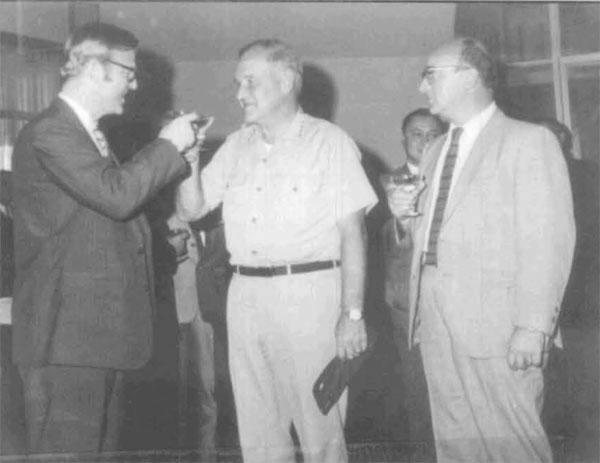
Others argue it began earlier, “in the mid-1970s as a search for new proxies following the debacle that was U.S.-South African intervention into the Angolan civil war.” (It is an adventure in itself to follow Good’s footnotes. He cites Joseph Trento’s Prelude to Terror: The Rogue CIA and the Legacy of America’s Private Intelligence Network, and John Prados’s and Arturo Jimenez-Bacardi’s “The Rockefeller Commission, the White House and CIA Assassination Plots.”
Good writes that “U.S. Exceptionism is also key to understanding Watergate, since the crimes of the Nixon administration were decidedly minor relative to the various scandals and state crimes that have been documented and/or suspected.
Good tells a fascinating story of a tête-à-tête between Nixon and CIA Director Richard Helms, in which Helms refused the president’s request for information about the 1962 Bay of Pigs debacle and the 1963 assassination of JFK. According to the story, Nixon “fires” Helms and then appoints him ambassador to Iran, which led to the mobilization of the Safari Club as a CIA proxy, and ultimately to the Iran hostage crisis of 1979.
Meanwhile, according to Good, the CIA deployed the Watergate Plumbers in the “damningly well-documented burgling of Dan Ellsberg’s psychiatrist,” and “the disastrous second Watergate break-in.” Good says that, “as with Kennedy, Nixon was undone by his failure to either counter or accommodate powerful factions of the American deep state.”
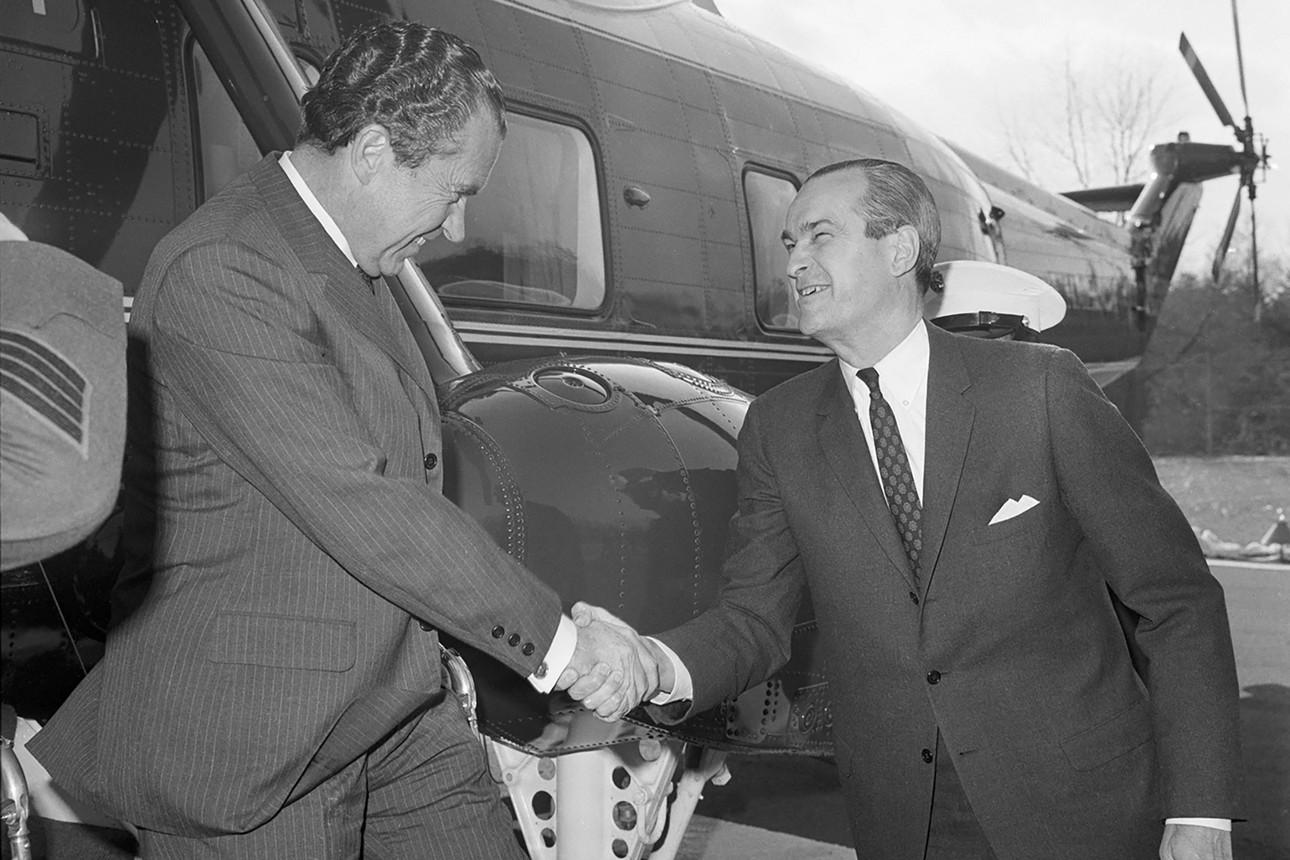
The horror stories in American Exception go on and on. It recalls the CIA role in toppling the governments of Iran in 1953 and Guatemala in 1954; its intervention in Italian and French elections following World War II to prevent leftist victories; and the use of about $175 million to establish and fund Japan’s Liberal Democratic Party.
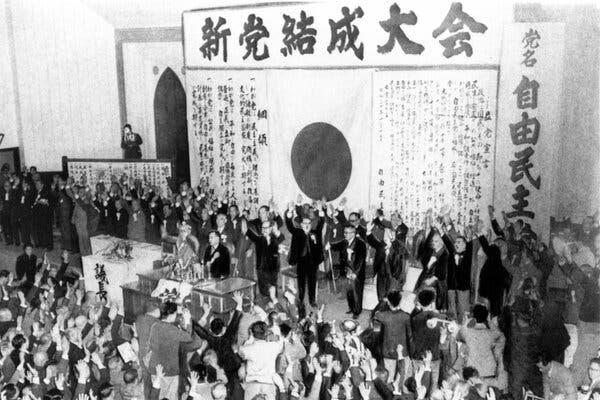
The LDP has “dominated Japanese politics for decades, making Japan into a de facto one-party state, firmly pro-U.S. and anti-neutrality.” It also tells of post-World War II use of Marshall Plan funds to “support Nightingale, a Nazi-created guerrilla army in Ukraine which during the war had carried out thousands of murders.”
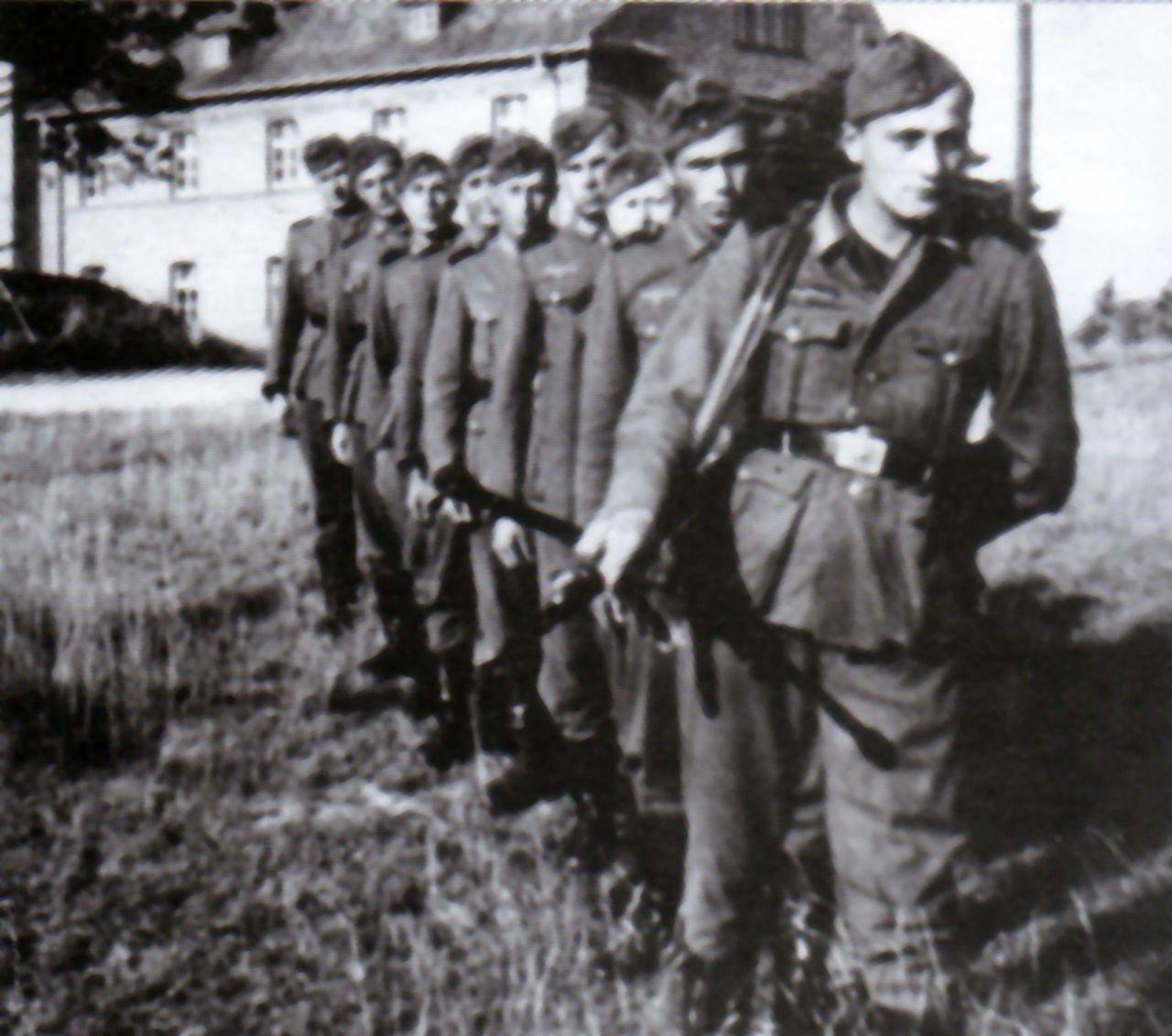
Good adds that, “in Europe, NATO’s Operation Gladio created ‘stay behind’ armies to resist Soviet occupation…Gladio assets were used to carry out false flag terror as part of a ‘strategy of tension’ designed to move countries politically to the right.” That strategy of tension can be seen in Ukraine today.
In Syria, Good writes, “the U.S. and its allies have been similarly deceptive and lawless. Jeffrey Sachs summarizes: ‘While the Syrian War is often described as a civil war, it was in fact a war of regime change led by the U.S. and Saudi Arabia under a U.S. presidential directive called Timber Sycamore.’ This U.S.-orchestrated operation has killed around 500,000 people and displaced more than 10 million Syrians.”
Good details the role of the so-called “White Helmets”—a supposedly “humanitarian” operation that is really “a devious deep state propaganda operation to legitimate the illegal overthrow of the Syrian government by al-Qaeda-dominated proxy forces.”

The millions of displaced Syrians, along with similar numbers from U.S. military fiascos in Iraq and Afghanistan, have created a massive humanitarian crisis in Western Europe, now multiplied exponentially by refugees from Ukraine. It raises the question of how long the U.S. can continue to brand itself as the world’s defender of “democracy and human rights.”
Looking for solutions—and comfort—in the face of these grim realities, we can return to Sirvent and Haiphong’s book, which is intended, they say, “to be a tool to help rebuild the U.S. antiwar movement currently on life support. Heroic efforts of groups such as the Black Alliance for Peace and Veterans for Peace have kept the spirit of anti-imperialism alive in a period where it seems like American exceptionalism has won the day.”
Sirvent and Haiphong highlight “the connection between U.S. militarism and movements against racism such as Black Lives Matter.” They add that “social movements cannot be relegated to a single issue if they are to be successful.”
So they call for linking demands against militarism to “the demand to scale back the mass incarceration dragnet in the U.S.”; that environmental justice advocates should emphasize that “one of the biggest polluters in the world is the U.S. military”; that “fights for $15 an hour and a union” should “target the U.S. military for its role in forcing other countries to enact free-market policies that emphasize low wages”; and that “the movement to preserve public education oppose the targeting of poverty stricken schools for military recruitment.”
Finally, they say “our struggles for collective liberation must always reject the ‘fake news’ of a benevolent, freedom-loving United States.”

CovertAction Magazine is made possible by subscriptions, orders and donations from readers like you.
Blow the Whistle on U.S. Imperialism
Click the whistle and donate
When you donate to CovertAction Magazine, you are supporting investigative journalism. Your contributions go directly to supporting the development, production, editing, and dissemination of the Magazine.
CovertAction Magazine does not receive corporate or government sponsorship. Yet, we hold a steadfast commitment to providing compensation for writers, editorial and technical support. Your support helps facilitate this compensation as well as increase the caliber of this work.
Please make a donation by clicking on the donate logo above and enter the amount and your credit or debit card information.
CovertAction Institute, Inc. (CAI) is a 501(c)(3) non-profit organization and your gift is tax-deductible for federal income purposes. CAI’s tax-exempt ID number is 87-2461683.
We sincerely thank you for your support.
Disclaimer: The contents of this article are the sole responsibility of the author(s). CovertAction Institute, Inc. (CAI), including its Board of Directors (BD), Editorial Board (EB), Advisory Board (AB), staff, volunteers and its projects (including CovertAction Magazine) are not responsible for any inaccurate or incorrect statement in this article. This article also does not necessarily represent the views the BD, the EB, the AB, staff, volunteers, or any members of its projects.
Differing viewpoints: CAM publishes articles with differing viewpoints in an effort to nurture vibrant debate and thoughtful critical analysis. Feel free to comment on the articles in the comment section and/or send your letters to the Editors, which we will publish in the Letters column.
Copyrighted Material: This web site may contain copyrighted material the use of which has not always been specifically authorized by the copyright owner. As a not-for-profit charitable organization incorporated in the State of New York, we are making such material available in an effort to advance the understanding of humanity’s problems and hopefully to help find solutions for those problems. We believe this constitutes a ‘fair use’ of any such copyrighted material as provided for in section 107 of the US Copyright Law. You can read more about ‘fair use’ and US Copyright Law at the Legal Information Institute of Cornell Law School.
Republishing: CovertAction Magazine (CAM) grants permission to cross-post CAM articles on not-for-profit community internet sites as long as the source is acknowledged together with a hyperlink to the original CovertAction Magazine article. Also, kindly let us know at info@CovertActionMagazine.com. For publication of CAM articles in print or other forms including commercial internet sites, contact: info@CovertActionMagazine.com.
By using this site, you agree to these terms above.
About the Author

Dee Knight is the author of Befriending China: People-to-People Peacemaking (available in Spring 2025), and a new 2025 edition of A Realistic Path to Peace: From Genocide to Global War… And How We Can Stop It. His Patreon site is “Dee Knight’s Books, Notes and Chats.”
Dee can be reached at: deeknight816@gmail.com.


[…] Two New Books Explore Pernicious Impact of U.S. Intelligence Agencies, by Dee Knight […]